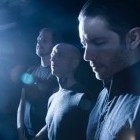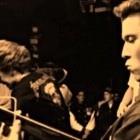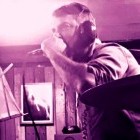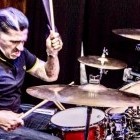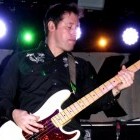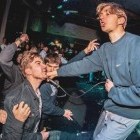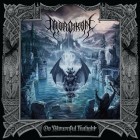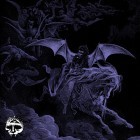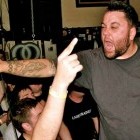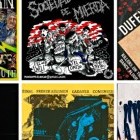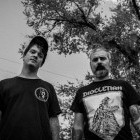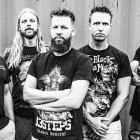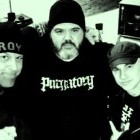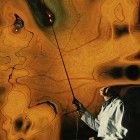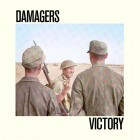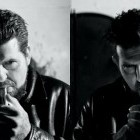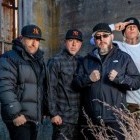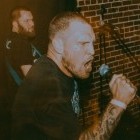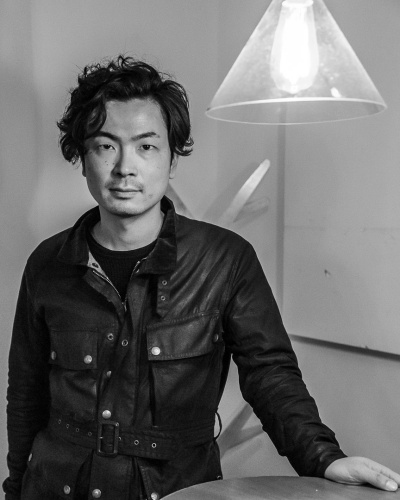
Teppei Miki initially came to my attention thanks to Darren Plank in a previous Photographer Spotlight when I asked him who some of his favorite photographers were. Upon finding his website and Instagram pages, I fell in love with Teppei's work. Based in Japan, his black and white shots capture so much energy and are the kinds of images that will make you feel guilty for not getting out and seeing more live punk shows.
With the help of translator B.B. Clarke, I interviewed Teppei for the aforementioned Photographer Spotlight series to learn more about his journey in music and photo.
Where were you born and raised, and were your parents into the arts?
I was born in a town called Kobe and lived there until I was in my teens. I’m guessing your site’s readers don’t know much about local cities in Japan, yeah? Kobe’s close to Osaka and has its own music scene, its own Chinatown, the food’s good, and it’s got both mountains and the ocean. It’s a great place.
My parents weren’t really what you’d call progressive or free thinking, living that kind of lifestyle, but my mom taught piano out of the home and I always remember the Beatles playing whenever we were in the car, so it was the kind of environment where I had plenty of exposure to music from a young age. My dad had apparently been a hippie before I was born, so fishing through his old cassettes is how I learned about all the big names in rock like the Stones, the Who, bands like them. I think that just the act of listening to American and European rock in an ultra-fucking-conservative country like Japan made my family progressive in and of itself.
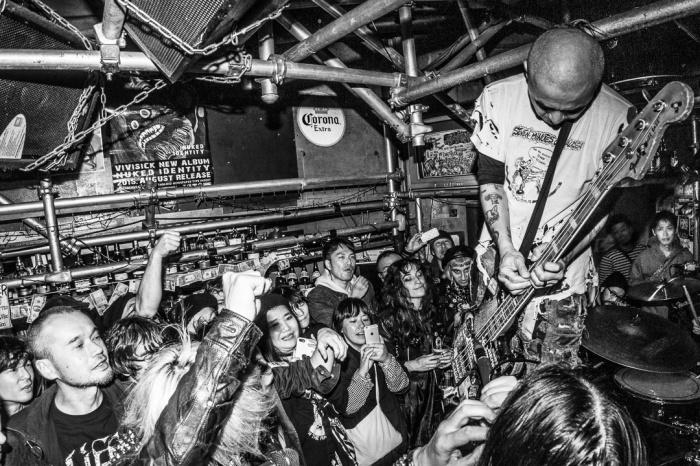
What was your first musical love?
Should I talk about the first time I came into contact with underground rock? Every day, I would get on the train and ride it for two hours from our house in Kobe to my high school. The school was an authoritarian hellscape and the teachers used to treat the students like they were in the military; they seriously thought that the whole point of education was to instill a sense of submissiveness in their kids. They carried around bamboo switches at all times in case they needed to mete out corporal punishment. I had plenty of friends that had nervous breakdowns and ended up dropping out of that school. I myself got completely fed up with the idea of living on the straight and narrow, so I’d search around town for ways to blow off stress.
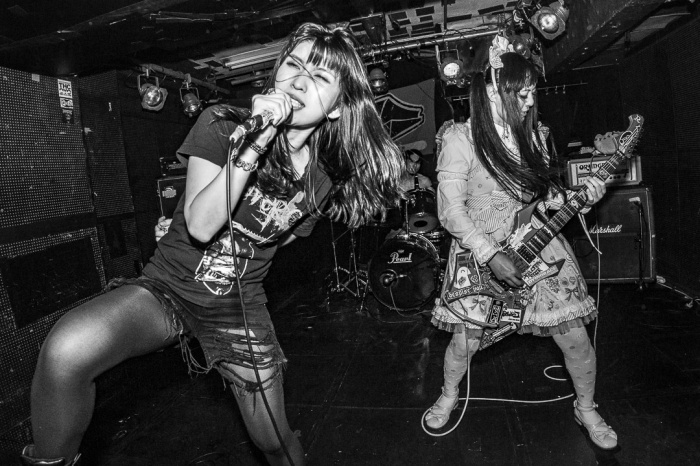
One day I found a live music venue at the next train station over that was run by this old worn-out hippie, and it had this great name, “Mushroom.” But the school warned us, “Don’t you kids go anywhere near that place!” So, just out of curiosity, on the way home from school one day, I nervously went to check the place out, but when I got there, the only people at the gig were just your run-of-the-mill young people, which was kind of a let-down. Still, seeing bands play that kind of dirty music ridiculously loud as hard as they could to what was basically an empty room really struck a chord in me. After that I started to go to venues in Kobe and Osaka and got to know about the vibrant punk and hardcore scenes there. I moved to Tokyo when I was 18 and was really surprised at how many rabid punk fans there were up here. It wasn’t long before the vibe rubbed off on me and I started collecting records myself.
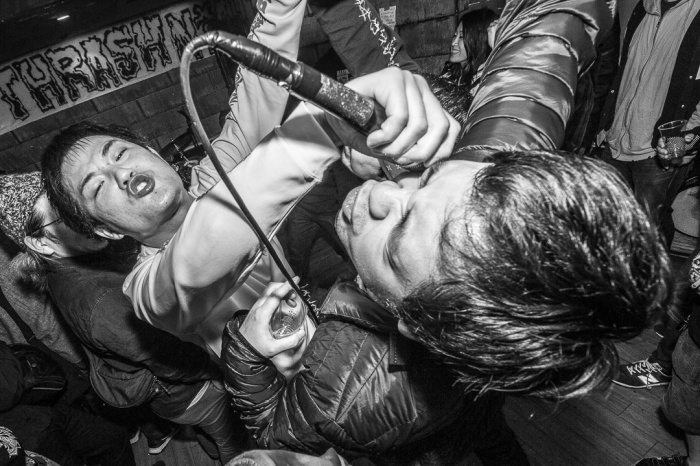
What is your camera and post set up?
I only have one camera, a Canon EOS5D Mark III, and I have two lenses. I’m not a professional photographer and I only shoot in small venues, so I don’t need a lot of gear. I think the best combination of elements for a good shoot is an enthusiastic show, a tiny venue that can't hold a lot of people and reeks of stale beer, and an ultra-wide-angle lens. There are times when I dive into the pit and shoot in there, so my gear gets broken frequently and I send it to the shop for repairs. Also, since I only shoot at clubs, my camera and my lenses reek of cigarettes. I’ll also stick bottles of beer in a pocket while I shoot, so my gear gets all sticky. Suffice it to say, I think that perishes any thought of me being a professional cameraman.
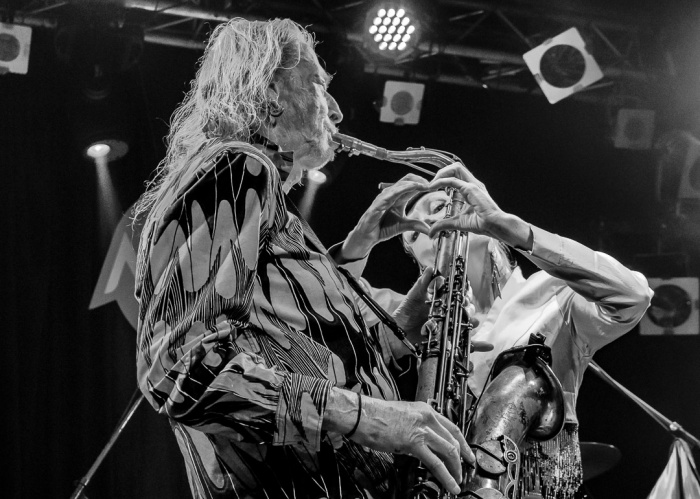
Who are some of your favorite bands to shoot?
Life, Crucial Section, Black and White, Smash Your Face, Skizophrenia, Daiei Spray, COMMUNiCATES, and Rangsteen.
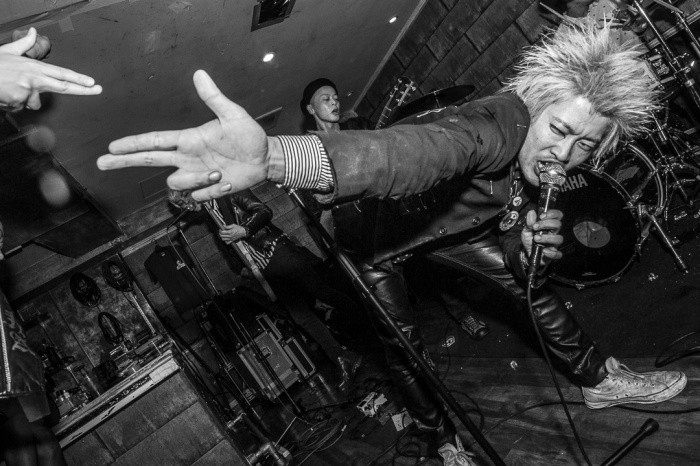
It’s not just that all of these bands display excellent musicianship, but they all give spectacular performances with all their energy, so I always come back from gigs with shots I'm satisfied with!
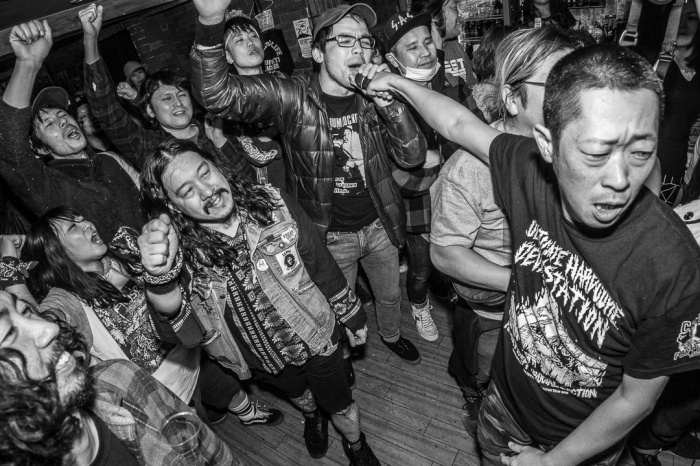
If you could go back in time, who are some bands that you would have loved to shoot?
Actually, it’s only been three years since I bought my camera and started shooting. If I had started shooting when I first started going to gigs, I would’ve been able to shoot all sorts of cool bands that’ve since broken up, and I really regret not having and shots from when I saw those them. Just to name some, I would liked to have shot bands like Paintbox, Gloom, Disclose, and Teengenerate.
But still, there are tons of gigs going on every weekend in Tokyo, and I’ve got enough on my plate to the point where it’s a problem deciding which show to go to, so I’m I can’t really complain.
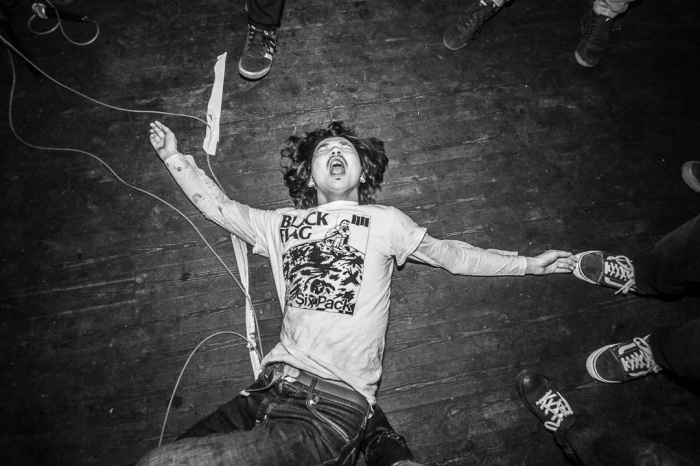
Is it getting tougher to carve a space out at venues since there are so many people shooting these days? How do you feel about that?
When I watch videos of American hardcore shows, there are always a bunch of cameramen shooting from the wings of the stage, yeah? There aren’t nearly that many photographers shooting at Japanese shows. At the most, you’ll have one or two per show. I think it’d be great if there were more people recording and disseminating what goes on at these stellar punk gigs in Japan. For instance, even if you can get a great angle, if it's a band you really like, then I think you should just keep going back to their shows again and again and try to get that one really great shot.

Tell me about some newer bands that we should all be on the lookout for.
Skitklass, The Tits, Summer of Death, Rigid, Ruler, The Smog.
They’re all different in terms of the direction they take, but they all combine an awesome performance with an excellent sound. If anybody reading this interview happens to come to Japan, definitely be sure to check out those bands’ upcoming schedules before you arrive.
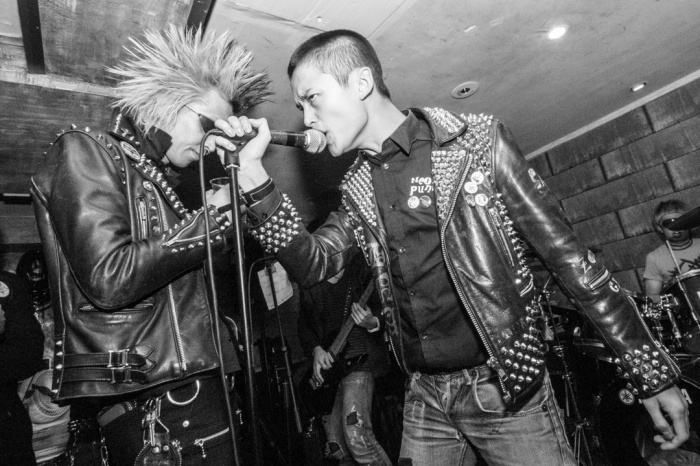
Who are some modern-day photographers that you admire?
I think the most important person for me would be Martin Sorrondeguy. My friend Toshio who runs Base Records in Tokyo actually put on a photo exhibition of Martin’s work here before. I wasn’t able to make it at the time, but I did manage to get an great photo-book that he put out. What is so amazing about him is that he’s been shooting for so long over so many years, yet he continues to improve even today. He’s also a unique kind of singer. He’s a person that I really respect.
Otherwise, just to list off the people I can think of now, there’d be Angela Owens, A.F. Cortés, David Fearn, Matt Gabell, and Farrah Skeiky. I’ve never had any formal education when it comes to photography, and I’ve never worked as an assistant to a pro, learning as I watched or anything like that; all I do is follow these kinds of live music photographers’ work, trying to do things that they’re doing while searching for my own ideal style of photography.
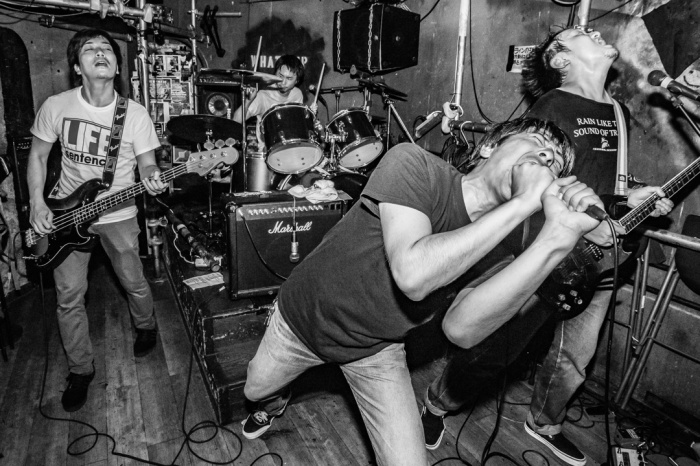
To go off on a tangent, one of the traditional teachings in Japan is a concept called “Shu-Ha-Ri,” written with the three characters for “obey,” “break,” and “distance.” It has to do with the process for honing one’s craft as a professional in pursuits like martial arts or tea ceremony, the idea being that in order to become an expert, novices first learn “forms” — or “kata” in Japanese — that are like routines or the fundamentals of that pursuit. After that you break with those routines, distancing yourself from the fundamentals to search for your own sense of originality, whereupon you ultimately arrive at the stage where you produce amazing work unconsciously. Unfortunately I’m still a long way away from the level of those photographers I mentioned before and can’t really break out of that first “Shu” stage. All I can do is keep at it and continue to shoot!
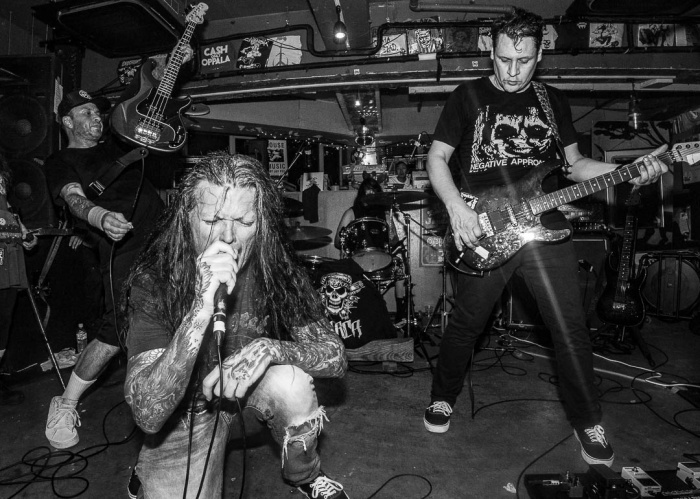
If you had to pick one of your photos that best encapsulates why you love shooting bands/artists, which one would it be and why?
Basically, no matter the gig, I’m up at the very front shooting. When I’m immersed in a band’s performance and really into the show, I feel like I don’t want to let even one second of the band’s actions slip by me and try to record even just a little bit of that performance. This means I naturally start hitting the shutter more often and my body pitches forward to get closer to my subject. When I get like that, I find that by the time I get home and check what I’ve shot, I’ll definitely have great pictures. The feeling I mention before is in this shot.
This may be idealistic, but holding my camera, squared off point-blank with the band, if I don’t shoot like I’m that band’s number one fan, then it’s no good. I mean, there are obviously plenty of times that I shoot bands I’ve never seen before, and my taste in music may not necessarily always match up with the band on stage, but in order to fully capture that band’s allure, it’s most important for me to try and get my heart and soul closer to that band. If you take a cynical or ironic stance toward a band and keep your distance, you’re not going to take good photos.
I think my attitude towards music has changed a lot since I started shooting live shows. I’m now able to connect with the music directly, physically, and intuitively, and I watch shows earnestly in order to capture the merit of the band in front of me. I’m really able now to enjoy punk and hardcore music to the fullest!
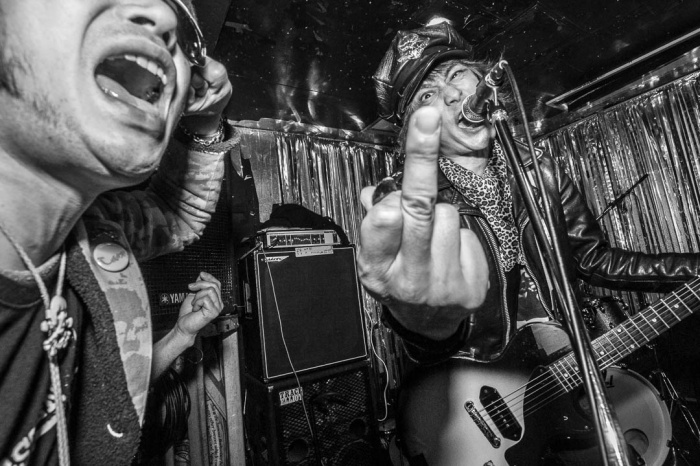
***
See more of Teppei's work on his website and you can also find him on Instagram and Twitter.
Tagged: photographer spotlight

